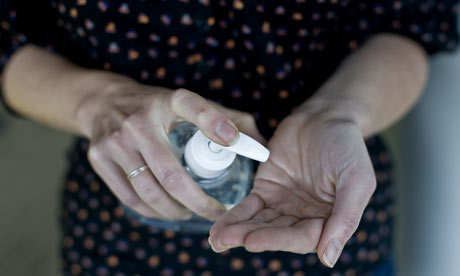
The number of swine flu cases in Britain may drop within the next two weeks before a return of the virus this winter, a flu expert said today.
Alan Hay, of the World Influenza Centre in London, suggested the first wave of illness may have already peaked but could not predict how far levels would fall in this phase of the pandemic.
His remarks came the day after the government said about 100,000 people in England caught swine flu last week, nearly double the figure for the previous week.
Hay told Radio 4's Today programme: "I think we will see a peak in this country in the next week or two, if not already. It will reduce. We don't know to what extent the level will drop down to a background level. We've seen in the US, although they peaked many weeks ago, that the level of infection in some of the states is still quite widespread.
"So it is a bit early to predict the trough that we will see before we see the virus re-emerge in this country."
Hay, talking about the government's response to the pandemic, said: "We've only really observed this over the last few weeks so, in terms of response, of course people could have done more sooner but that again might have raised greater alarm over the population."
Current levels of flu infection were the highest since the 1999-2000 winter season. One of the differences was that swine flu appeared to adversely affect under-45s. "There is some information which suggests that people over the age of 60 or so may well have some immunity against the virus because of some prior exposure to a similar virus."
Meanwhile, a 26-year-old pregnant woman who is critically ill with swine flu is undergoing specialist treatment in a Swedish hospital today because there are no spare beds at the UK unit.
The Scot was admitted to hospital in Kilmarnock, near Glasgow, last week where she was put on a ventilator because of an extreme reaction to the H1N1 virus. The specialist care team there recommended she received a procedure called extra corporeal membrane oxygenation (ECMO). This technique is used when a patient's lungs are working poorly even with ventilation and high levels of oxygen. It involves circulating the patient's blood outside the body and adding oxygen to it artificially. The national ECMO centre in Leicester has five beds but all are being used.
Under pan-European arrangements for sharing scarce medical resources, a bed was found in a similar unit in Stockholm. Robert Masterton, executive medical director of NHS Ayrshire and Arran said: "The family have been fully involved in this decision and support the referral. They have asked for privacy while they concentrate on the patient's treatment and recovery."
The government's swine-flu diagnosis website for people in England was running smoothly today after an inauspicious launch yesterday. The service was suspended within minutes because it could not cope with the traffic, with 2,600 people trying to access it every second.

